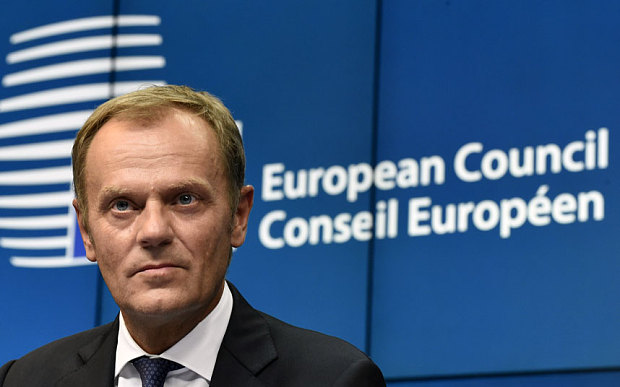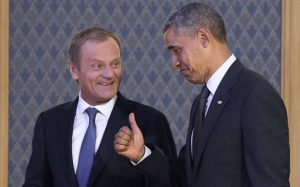Donald Tusk, the new European Council president, admitted that he felt anxious, like a debutant, right before going into his first summit. Taking over from Herman Van Rompuy, the former Polish prime minister is the first-ever president from a former Communist or Soviet state to take a top EU position since the 2004 enlargement. The summit was also the first formal occasion to showcase his English. He has had three months’ of intensive lessons in preparation for addressing European leaders in the diplomatic lingua franca. The European Council does not legislate per se, but since it is comprised of all the leaders of the member states, it acts as a collective presidency, and weighs-in heavily in the direction of the EU.
The Council’s meetings are called summits, and are usually held four times a year.
Participants praised this particular one, which marked the changing of the guard. Chancellor Merkel, who is known for favouring Tusk, congratulated him for a “short, concise and well-organised council”. Normally summits start on Thursday evenings, run late into the night, and often end Friday afternoon. Matteo Renzi, the Italian Prime Minister, was equally supportive and appreciative: “Thank you Donald and congratulations, this is the first time we sleep at home and I’m really really happy, because the conclusion of the council in only one afternoon and evening is great news”.
The issues discussed, however, were not particularly thorny. EU leaders endorsed Jean Claude Juncker’s plan to invest 315 billion euros into transport, energy, research and small business. Intended to kick-start the EU’s stagnating economy this money will be managed by the European Investment Bank. Brussels, in agreement with investors, would like to keep such decisions within the power of European Investment Bank experts to avoid financing national politicians’ pet programs. Indeed, this could be the first test of whether Europe’s new leadership can resist pressure to restore decision-making to the level of individual nations.
European Union leaders endorsed Jean Claude Juncker’s plan to invest 315 billion euros into transport, energy, research and small business.
Mr. Tusk had made clear publicly, in advance of the summit, that he wanted a firm line on economic sanctions on Russia, which he called “our strategic problem”. It was only when he spoke about Russia that he had trouble finding the words in English. “The biggest challenge today is the Russian approach, not only to Ukraine but also to the EU,” he said. Regarding the “strategic” discussion on Russia, the summit’s conclusions echoed the status quo: that Europe doesn’t trust Russian leader Vladimir Putin, and that sanctions can only be lifted as soon as Russians cooperate in stabilising Eastern Ukraine.




